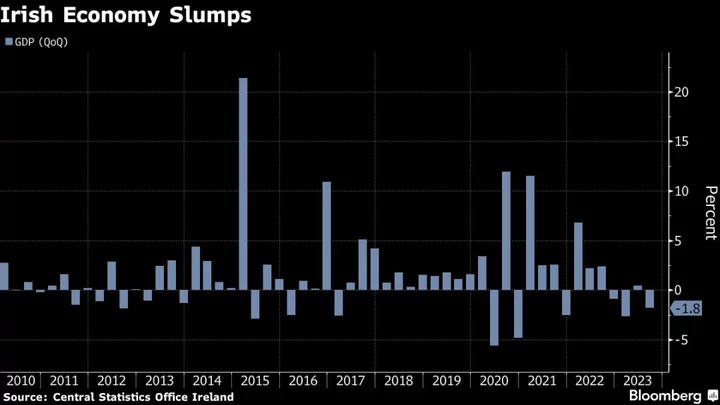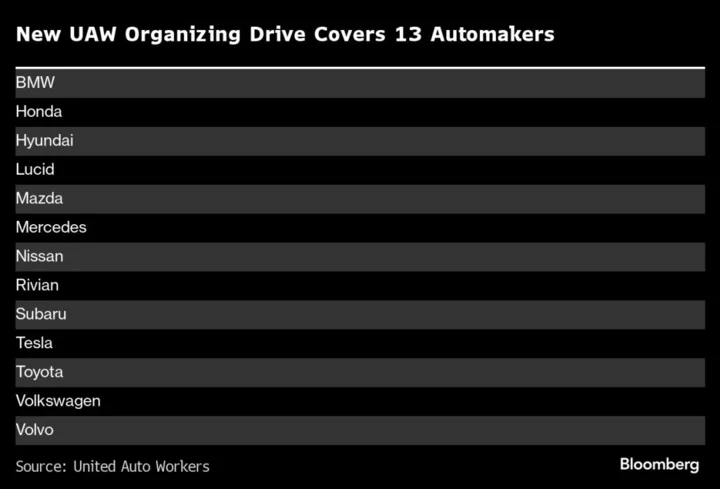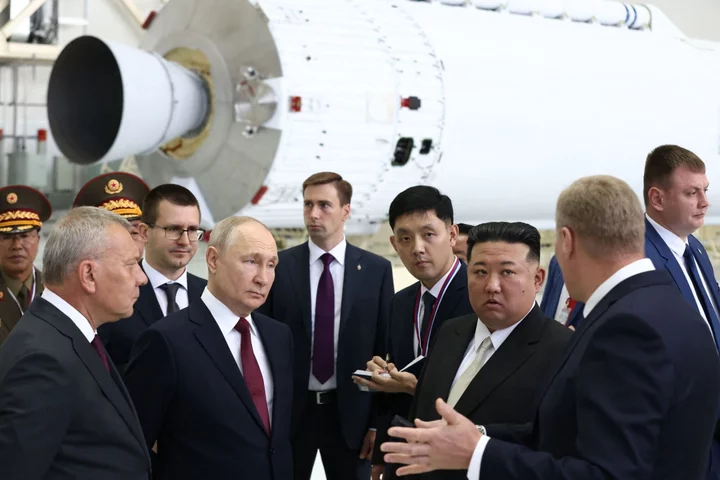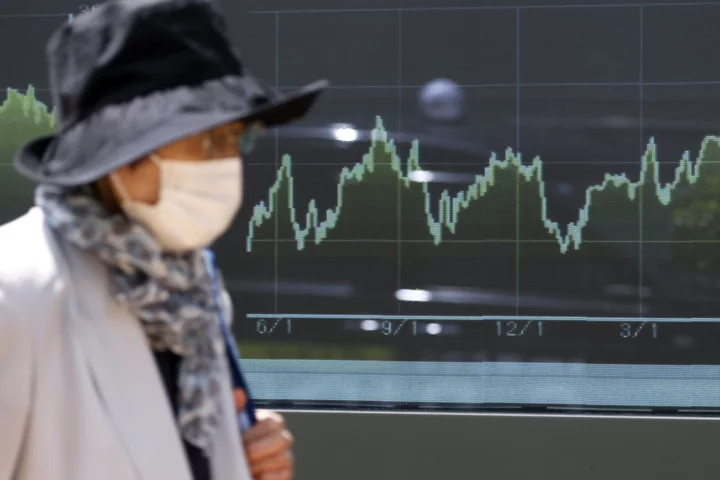China’s weaker-than-expected data for May has spurred economists at several key banks to lower their growth forecasts for the year, with expectations picking up for more policy support in the coming weeks.
JPMorgan Chase & Co., UBS Group AG and Standard Chartered Plc all trimmed their 2023 gross domestic product growth forecasts to 5.5% or lower this week after official figures for retail sales growth and fixed asset investment slowed from April and undershot expectations.
“The general softness in May activity data highlights softness in domestic demand,” especially in the housing market and in private investment, JPMorgan economists led by Haibin Zhu wrote in a Thursday research note as they cut their 2023 growth projection to 5.5% from 5.9%.
The JPMorgan report added that the Chinese economy now faces “key challenges” from the loss of recovery momentum and growing concerns about deflation.
UBS now expects the economy to grow 5.2% this year, down from a previous projection of 5.7%. Economists including Tao Wang cited woes in the property sector as a contributor, adding that there’s a risk the current weakness in sales “persists or deepens further.”
Standard Chartered economists forecast growth this year of 5.4%, down from an earlier estimate of 5.8%, after the disappointing data.
The weakening economy has shifted Beijing’s focus toward stimulus, with the People’s Bank of China this week cutting a key policy rate for the first time since August to help growth. Economists have warned, though, that rate cuts alone likely won’t be enough to support an economic recovery beset by weak business and household confidence.
That’s led to speculation about what kind of stimulus authorities might consider and how much. The State Council is expected to discuss a broad package of stimulus proposals for sectors including property, Bloomberg News reported earlier this week.
Any support measures are likely to be measured, the Standard Chartered economists wrote in a report Thursday.
“While we expect China to introduce additional policy support to safeguard a continued economic recovery, we think the likelihood of a big stimulus is low,” economists including Wei Li wrote, adding that Beijing’s official growth target of about 5% for 2023 is still in reach.
The economists expect the central bank to lower the amount of cash banks must keep in reserve in the third quarter of this year and the first quarter of 2024. China will also likely loosen housing policies and support infrastructure investment growth via policy bank lending, among other measures, they said.
UBS pointed to July’s Politburo meeting as a “key date to watch for a policy package or major policy tone change.” With the People’s Bank of China starting to cut rates and some tier two cities easing property policies already, more measures may be announced before late July, they said.
Measures to boost confidence “including lowering some tax and fees, entry barriers, transaction costs, and arrears for enterprises” are being pushed by the State Council and its major departments, UBS said. Any major fiscal support “may still have to wait” until the Politburo meeting, it added.









